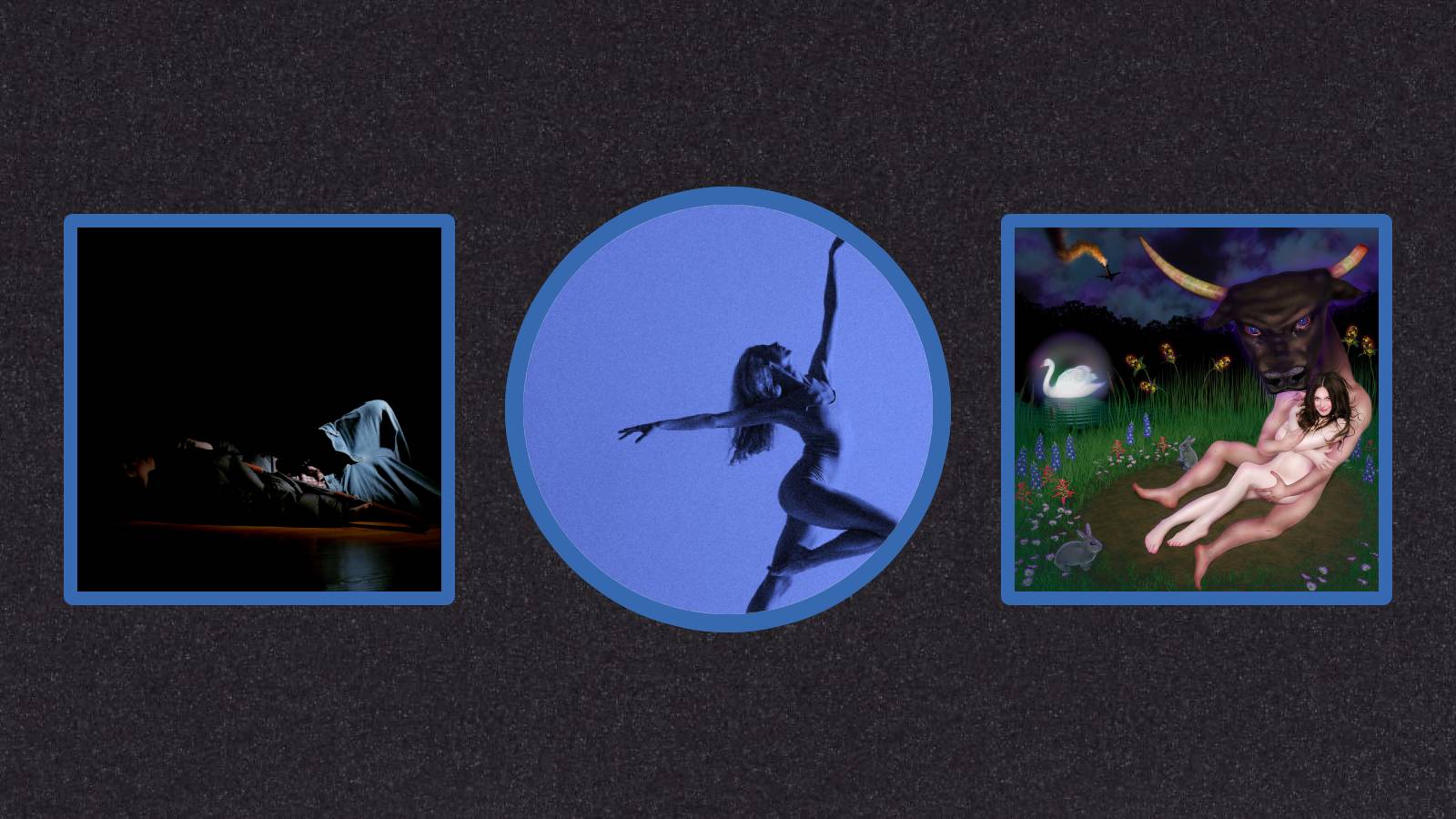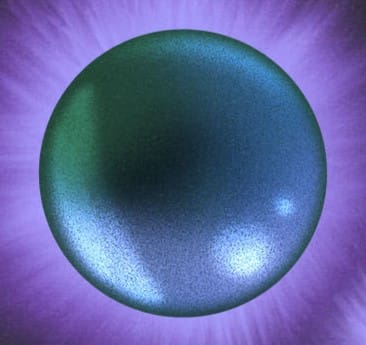Chasing Fridays: Whirr, Jane Remover, Tex Patrello, more
Reviews of Whirr's surprise album, a 2024 gem, and a 2025 hit. Also, a shoegaze rec from 1994.

New year, new opinions on music, new Sundays to chase. So, in essence, more of the same over here. For the first Chasing Fridays column of 2025, I wrote about the new album Whirr surprise-dropped on Christmas day. I also wrote about an album from mid-2024 that didn't make sense to me until the end of last year. Oh, and a new Jane Remover song – the first banger of 2025. And then I introduced a new feature of this column that I think many of my readers will be excited about. Scroll onward.
If you like what I wrote here and/or in any other article I publish on Chasing Sundays, then I'd appreciate it if you subscribed at the $5/month tier. My paid subscribers (thank you!) provide me with a crucial income stream so I can maximize the number of hours I dedicate to this blog, and also just writing in general. I'm very fortunate to make my living with words, but that's getting harder and harder in this economic climate, so any support is greatly appreciated.
Whirr - Raw Blue

Whirr are a magnet for big feelings. People hate Whirr harder than any other band – either because of the transphobic comments that were made on their Twitter account in 2015, or because other people love Whirr so much that it feels good to hate them. People love Whirr to a degree that very few shoegaze bands are ever afforded. In the Bandcamp comments for Raw Blue – Whirr's first album in five years, surprise-released on Christmas day – one fan wrote, "Going through the hardest time of my life. Whirr just made it easier." Search Whirr's name on Twitter or look at any Reddit thread about their music, and you're bound to stumble into similar comments. Not just simple adoration for Whirr's music, but desperate outpourings of gratitude for their very existence.
Shoegaze has always been a container for emotions that are too grand and messy to express with coherent words. Desire, anguish, and love are emoted through the distorted rumblings and narcotic murmurs of My Bloody Valentine, Slowdive, and Ride. Whirr's take on shoegaze has a much more dismal temperament. There's something about the desolation in Whirr's music that speaks to people who are on the brink. The breakup songs that encompass their 2014 album, Sway, aren't buoyed by the adolescent romanticism that makes Slowdive's Souvlaki, even at its gloomiest, sound vaguely hopeful. The heartbreak in Whirr's music sounds terminal. The minor-key guitar riffs have the grayscale coloration of concrete, and singer Loren Rivera's sunken-cheek vocals sound like they're weighed down with lead.
It's impossible to untangle Whirr's music from the band's own turbulent lore, which makes their output yet another shade darker. Depending on how you view their past transgressions today, their music is either corrupted by those wrongdoings or imprisoned by them, giving their albums a taboo quality that can either feel sinful or liberating to engage with. When I spoke with Whirr guitarist Nick Bassett earlier this year – his first, and final, honest interview – he confirmed that the lyrics of their 2019 album, Feels Like You, were "for sure" influenced by the band's cancellation in 2015. Therefore, it seems undeniable that Raw Blue is similarly reflective of what happened to Whirr in the five years since their last full-length.
Despite remaining mostly inactive, their popularity has soared throughout shoegaze's TikTok-era renaissance; one of the most successful shoegaze acts of the 2020s, Wisp, famously uses the handle @whirrwhoreforlyfe on Instagram. In addition to breaking his career-long silence to speak with me, Bassett made his first onstage appearance in nearly a decade at last year's Slide Away festival, and the band reissued a bunch of old material that put their name back into the zeitgeist. For a band who've courted controversy since their early days, 2024 seemed like a relatively positive year for Whirr, and Raw Blue, recorded just a month before its release, is the most energized and musically engaging that they've ever sounded. It sounds less like a funeral, as Feels Like You registered as, and more like a rebirth.
"Collect Sadness" is the most dynamic song in Whirr's catalog, opening with a royal drum roll that queues a tower-crumbling main riff that puts to shame every limply predictable grunge-gaze crescendo of the last 10 years. Then, in the verses, jousting stabs of reverse reverb swoosh on either side of Rivera's vocals like shadowbox punches. Combined with the siren-like whooshes in "All Mine" and the giddy jet engine lashings in "Swing Me," Raw Blue contains the most playful and invigorating guitar noises of their whole career. I've always found Bassett's guitarwork to be texturally rich yet writerly bland, and Rivera's vocals to be similarly vacant, lacking the pile-driving inertia and wounded hooks of their superior sibling band, Nothing. Something must've happened during the construction of Raw Blue, because Whirr have never sounded this interesting.
Every exhale Rivera takes explodes into a plume of granular stardust, and the surrounding instrumentation is finally voluminous and swollen enough to conjure the thrill of their infamously loud live shows. The production, a joint effort between the band and longtime producer Zac Montez, is so majestically plush that even when the songs begin to slur together on side B, the listening experience still has the soothing quality of a warm bath. It's the only Whirr album that's ever held my interest the whole way through, and the record's eight-minute closing track, "Enjoy Everything," might be Whirr's artistic high-water mark. The lilting ballad slowly warms to a slinky groove, Rivera's multi-tracked whispers pour into the mix like morning light, and the sheets of shimmering guitar ambience hang in the background like Christmas tinsel. Once Rivera is done singing, a wailing trumpet steps into the spotlight and the song descends gradually until it fades into nothingness. It feels like a statement of purpose to arrive this far into Whirr's career. An indication that they're not done evolving their sound, and a composition that actually lives up to the way fans breathlessly praise their every note.
I didn't anticipate having to produce more thoughts on Whirr for a long time. Bassett told me that Whirr had no plans to record new music when I spoke with him earlier this spring, and I have reason to believe that was true at the time. It remains unclear if they'll ever play another show, but between Raw Blue and the Speeding/Busy seven-inch they dropped the same day, they haven't been this active in years. Their very existence remains contentious for many people – particularly trans folks – in the shoegaze community. The comment section of Stereogum's Raw Blue news write-up illustrates the stark polarization their band incites: those who love their music vs. those who despise it, and those who forgive them for their decade-old tweets vs. those who don't accept the apology Bassett offered in my interview. I have my own personal opinions about Whirr's extra-musical reputation, but, as I wrote in the introduction to my interview, I'm not in the business of taking sides on the matter. I advise anyone who wants to know more about Whirr's knotty history to read the Q&A and decide for yourself where you stand.
However, to those who will inevitably view this review of Raw Blue as some kind of moral endorsement of Whirr as people, I'll reiterate a point I raised in my initial Whirr essay – a rumination on cancel culture from the perspective of a music journalist – from March 2023. Music journalists stopped mentioning Whirr's name altogether after their 2015 cancellation. Not one notable outlet reviewed Feels Like You in 2019, and as of now, no other publication has reviewed Raw Blue. In the time since Whirr were blacklisted by the media, ostensibly as punishment for the transphobic comments that were made on their Twitter account, their popularity has only grown exponentially. An entire generation of shoegaze fans have discovered their music on TikTok and streaming services, and many of those young people are not aware of Whirr's controversies – they only know about the band's music. Refusing to cover Whirr's music hasn't maintained their "canceled" status. De-platforming them hasn't made them less popular. The exact opposite has occurred.
My decision to review this album is premised on my core belief as a music journalist that critics have a duty to engage with music people care about, if for nothing else than to document the way that music resonated at the time, which includes providing the cultural context around the music itself. I'll always have complicated feelings about Whirr. Whirr will always be a complicated band. Dealing with complicated situations doesn't necessarily resolve them. Ignoring them, however, ensures they will only fester.
Tex Patrello - Minotaur
Credit goes to fellow music scribe Elise Soutar, who sang this record's praises in her end-of-year roundup – a crucial read that introduced me to several amazing albums I missed this year. My friend and Endless Scroll co-host Eric Bennett sent me this album back in the spring, and I remember strongly disliking it upon my first listen. A grave error in judgment that I'm now doing my best to repent for. As Elise wrote in her Paste blurb last month, "it’s rare to find something as startlingly inventive and strange as Minotaur." Agreed. I'm not even going to try and situate this album within a scene or sound, because it exists outside the bounds of every contemporary pop trend.
If I had to reach deep into my sack of reference points and pull a couple out, I'd probably say something like, "sometimes, Tex Patrello's serpentine hisses remind me of Australian pop welder Katie Dey." Or, "A song like 'Wichita Falls' gives me the same flutters that weird-ass bedroom-pop records like Lemon Meringue Die's nobody wouldn't see good things and Julia Brown's An Abundance of Strawberries gave me in the mid-2010s." I suppose I'd also add that, "Parts of 'Resident Evil' specifically recall Alex G's 'Salt' – none of his other songs, just that one, which sounds like the faces on a 200-year-old oil painting melting down the canvass due to water damage."
Every now and then I hear an album that chisels another angle out of the stone sculpture that represents my lifelong quest to understand the totality of music. Minotaur is one of those records. Now that I appreciate this record, it feels like I visited one of the grayed-out areas on the GTA map. My horizons have expanded. The breadth of my artistic periphery has widened. The only trouble is choosing what the hell to throw on once Minotaur is over. Minotaur makes "normal" music sound peculiar, as if I was living abroad for months, learned an entirely new language, and then returned home to discover how foreign my native tongue feels. Maybe I'll just never go back.
Jane Remover - "JRJRJR"
Digicore, the rap-based sibling genre to hyperpop, took off in 2020. By the end of 2021, it was something its own pioneers like Jane Remover felt they needed to grow out of to be taken seriously. Since pivoting to shoegazey post-rock on 2021's frailty and 2023's census designated, Jane Remover has been taken very seriously. Now, as she continues to explore her rock side under her Venturing alter ego, she's returning to digicore-esque sounds as Jane Remover. "JRJRJR," her new single from a forthcoming album called Revengeseekerz, is the most blown-out hype song she's released in years. Her R&B-ish 2024 singles, "Flash in the Pan" and "Magic I Want U," didn't do much for me. "JRJRJR," though, is a riot.
It has the artfully stuttering vocals that call back to when digicore was briefly tagged "glitchcore" during the David Shawty/Yungster Jack era (a real IYKYK). The bass drop sounds like a furnace exploding. Between the evil beat's jittering synth loops and distorted whip cracks, I can't help but think of recent songs by 2hollis and Nettspend. Rappers who, consciously or not, have taken the mantle from digicore in the last couple years, fusing some of those oddball sounds with Carti-an rage rap and rocketing to fame on the back of something that was once confined to the SoundCloud underground. "JRJRJR" feels like a friendly challenge to every artist in 2hollis' periphery. "Yeah, I can do that, too," Jane's fearsome energy on "JRJRJR" suggests. "I might even do it better."
Six String Malfunction - Kirlian

Although I primarily use Chasing Fridays to write about new releases, at least half of my listening diet these days consists of older music, and it feels silly to not have an outlet to write about those records. Therefore, in 2025, I'm going to make a point to write about one older release in each of these roundups. My blog, my rules – and I think it'll be fun.
I'll start the year off by plugging this 1994 album, Kirlian, by the Arizona shoegaze band Six String Malfunction. The solo project of multi-instrumentalist composer Roland Daum, Six String Malfunction was part of the "Beautiful Noise" scene that cropped up in Arizona in the mid-90s, playing alongside Alison's Halo, Half String, Lovesliescrushing, and many other shoegaze, drone, and space-rock bands who've been lost to annals of time. Recorded on a four-track tape machine and initially self-released on cassette, Kirlian hits the lo-fi ambient/drone-gaze sweet spot that's commonly associated with the Michigan Burnt Hair Records scene that was happening across the country contemporaneously (Windy & Carl, Mahogany, Füxa). This album was released one year after Lovesliescrushing's seminal debut, Bloweyelashwish, and it's the closest I've heard any band get to achieving that same sound. Basically, imagine if someone heard Slowdive's "Avalyn" and thought, "What if I stripped away everything but the guitars, and liked Brian Eno even more than they do?"
File under: music where the guitar sounds like a foghorn, and every reverb-crested note stretches infinitely into the great beyond.



